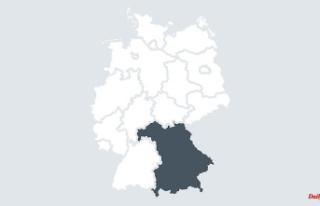Wall Street continues to fall sharply for the third day in a row. Interest rate hike and recession concerns continue to weigh on investors.
On Wall Street, fears of a severe economic downturn remain pervasive. After a slide on Friday and further discounts at the beginning of the week, the most important US indices quickly turned into the red on Tuesday and each closed around one percent lower. After moderate gains in early trading, the leading index Dow Jones Industrial finally fell by 0.96 percent to 31,790.87 points and was thus at the level of the end of July. The market-wide S
Investors were nervous about the surprisingly sharp increase in the US consumer sentiment index and the unexpectedly high number of job vacancies at 11.239 million, which indicates a persistent labor shortage. This fuels fears that the Fed, in its fight against a wage-price spiral, will plunge the US economy into recession with drastic interest rate hikes.
Fed Chairman Jerome Powell had already prepared the financial markets for a longer series of significant hikes on Friday. "The message was clear," said Naeem Aslam, chief market analyst at brokerage firm AvaTrade. "Monetary policy is currently a one-way street." Fears of a recession that flared up again were also reflected in commodity prices. US crude oil, WTI, fell 5.3 percent to $91.81 a barrel (159 liters).
On the corporate side, Chinese companies took the spotlight. According to insiders, the US authorities have singled out the online retailer Alibaba and several other previously unknown companies to scrutinize their audit reports. The USA and China had only recently settled their dispute over access to the documents of companies from the People's Republic and thus averted the forced exclusion of more than 200 Chinese companies from the US stock exchange. Shares in Alibaba, online retailer Pinduoduo and Google rival Baidu fell by up to 6.5 percent. Alcoa shares also fell, falling 8.6 percent. The aluminum manufacturer is cutting production at a Norwegian plant because of high energy prices.
In contrast, the papers from Best Buy were in demand. Bucking the trend, they rose by a good 1.6 percent after the electronics retailer's sales declined less than feared at 12.1 percent thanks to discount campaigns. Quarterly earnings also surprised on the upside at $1.54 per share. However, the cancellation of the medium-term targets indicates that profitability in 2023 could disappoint, analyst Jonathan Matuszewski from the investment bank Jefferies pointed out.












